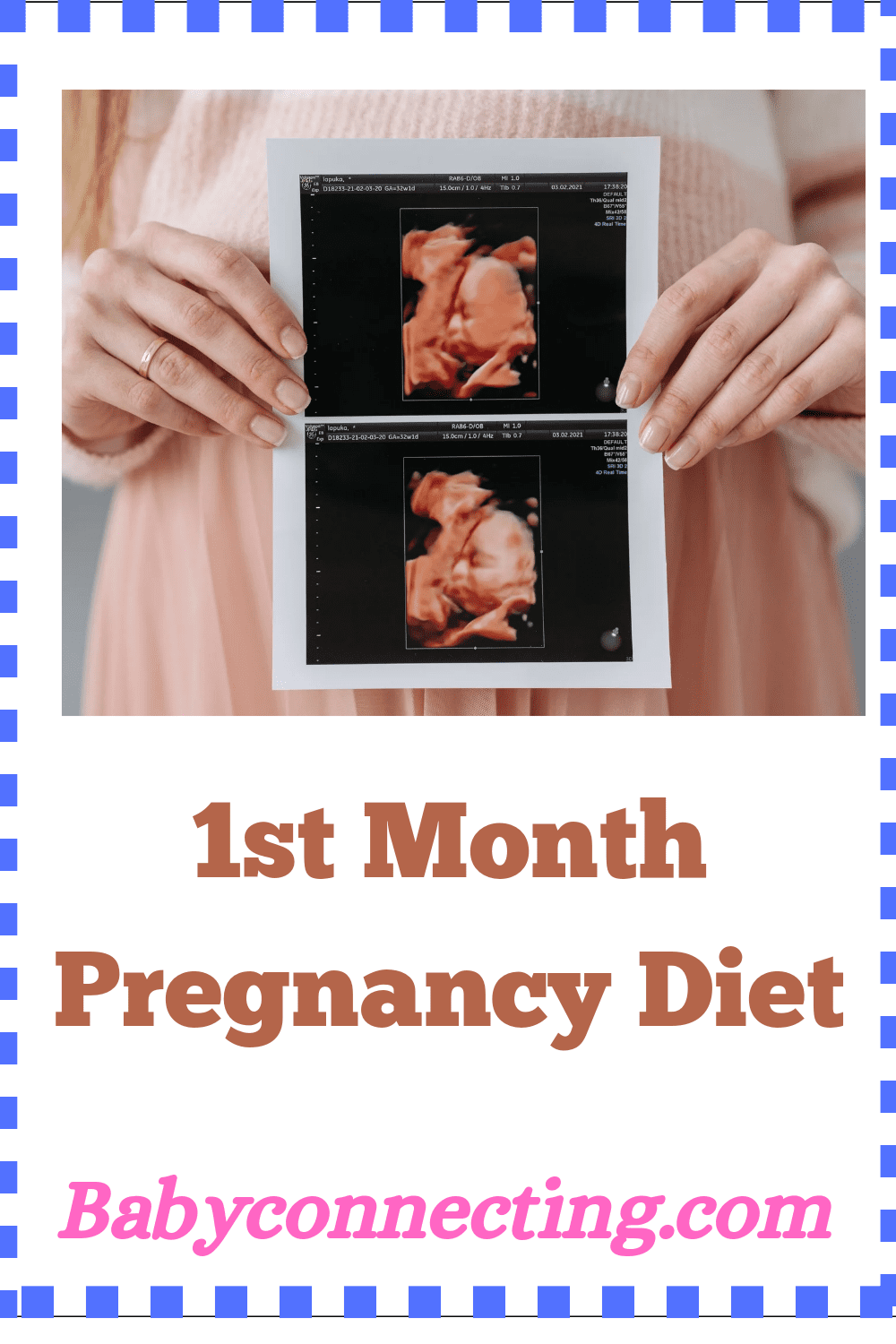Nourishing Your Body: 1st Month Pregnancy Diet Essentials

Introduction:
Congratulations on embarking on this incredible journey of motherhood! The first month of pregnancy marks the beginning of a beautiful transformation within your body. As you nurture the precious life growing within you, it’s crucial to pay special attention to your diet to ensure both your health and the well-being of your baby.
Understanding the dietary needs during the first month of pregnancy is essential for laying a strong foundation for a healthy pregnancy. Here, we’ll delve deep into what to eat and avoid during this crucial period, along with recommended daily intake of nutrients to support you and your baby’s growth.
1. What to Eat:
During the first month of pregnancy, focus on incorporating nutrient-dense foods that provide essential vitamins and minerals. Here are some key pointers for building a healthy pregnancy diet:
– Folate-rich Foods:
Start incorporating foods high in folate, such as leafy greens, lentils, avocado, and citrus fruits. Folate is crucial for early fetal development and helps prevent neural tube defects.
– Lean Proteins:
Include lean proteins like poultry, fish, tofu, and legumes to support the rapid growth of your baby’s cells and tissues.
– Whole Grains:
Opt for whole grains like oats, quinoa, brown rice, and whole wheat bread to provide sustained energy and essential nutrients like fiber, B-vitamins, and minerals.
– Healthy Fats:
Incorporate sources of healthy fats such as nuts, seeds, avocado, and olive oil to support brain development and hormone production.
– Calcium-Rich Foods:
Ensure adequate intake of calcium through dairy products, fortified plant-based milk, leafy greens, and almonds to support bone development in your baby.
– Hydration
Drink plenty of water throughout the day to stay hydrated and support the increased blood volume and amniotic fluid production.
2. What to Avoid:
Certain foods and habits should be avoided during pregnancy to minimize the risk of complications. Here are some key pointers on what to avoid during the first month:
– Alcohol:
Avoid alcohol completely as it can harm the developing fetus and increase the risk of birth defects and developmental issues.
– Raw or Undercooked Foods:
Steer clear of raw or undercooked meats, seafood, and eggs to reduce the risk of foodborne illnesses such as salmonella and listeria.
– High-Mercury Fish:
Limit the consumption of high-mercury fish like shark, swordfish, king mackerel, and tilefish, as mercury exposure can harm the baby’s developing nervous system.
– Caffeine:
Limit your intake of caffeine from sources like coffee, tea, and soda, as excessive caffeine consumption has been linked to an increased risk of miscarriage and low birth weight.
– Unpasteurized Dairy Products:
Avoid unpasteurized dairy products and soft cheeses like feta, brie, and blue cheese, as they may contain harmful bacteria like listeria.
3. Recommended Daily Intake of Nutrients During Pregnancy:
Meeting your daily nutritional requirements is crucial for supporting a healthy pregnancy. Here are the recommended daily intake of key nutrients during the first month of pregnancy:
– Folate: 400-800 micrograms (mcg) per day
– Iron: 27 milligrams (mg) per day
– Calcium: 1,000 milligrams (mg) per day
– Protein: 71 grams (g) per day
– Omega-3 Fatty Acids: 200-300 mg of DHA per day
Conclusion:
The first month of pregnancy is an exciting time filled with anticipation and joy. By prioritizing a well-balanced diet rich in essential nutrients and avoiding harmful substances, you can lay the foundation for a healthy pregnancy and give your baby the best start in life. Remember to consult with your healthcare provider for personalized dietary recommendations and guidance throughout your pregnancy journey.
Research References
1. Koren, G., & Ornoy, A. (2012). The role of folate deficiency in congenital malformations: The story of folate antagonists. Pediatric Research, 71(2), 137–144.
2. National Institutes of Health. (2020). Iron. https://ods.od.nih.gov/factsheets/Iron-HealthProfessional/
3. Institute of Medicine (US) Committee to Review Dietary Reference Intakes for Vitamin D and Calcium. (2011). Dietary Reference Intakes for Calcium and Vitamin D. National Academies Press.
4. American College of Obstetricians and Gynecologists. (2020). ACOG Practice Bulletin No. 202: Gestational Hypertension and Preeclampsia. Obstetrics & Gynecology, 135(6), e237–e260.
5. U.S. Food and Drug Administration. (2020). Eating Fish: What Pregnant Women and Parents Should Know. https://www.fda.gov/food/consumers/eating-fish-what-pregnant-women-and-parents-should-know
6. American College of Obstetricians and Gynecologists. (2010). ACOG Committee Opinion No. 462: Moderate Caffeine Consumption During Pregnancy. Obstetrics & Gynecology, 116(2), 467–468.
7. Mayo Clinic. (2021). Pregnancy week by week. https://www.mayoclinic.org/healthy-lifestyle/pregnancy-week-by-week/expert-answers/pregnancy-and-fish/faq-20058136
These references provide scientific support and guidance for the dietary recommendations and guidelines outlined in the blog post.

